
As an ecommerce business, Product Information Management (PIM) solutions are likely one of the most critical aspects of your operations. After all, if you can’t effectively manage your product data, how can you expect to sell anything? That’s why it’s important to know the different PIM solutions for retailers.
In this market guide, we will look at some of the top PIM solutions on the market for different sizes of business, and explain why they might be a good fit for your business.
What is a PIM?
PIMs (Product Information Management solutions) are systems that helps businesses manage product data. This product data can include anything from product descriptions and images to specs and inventory levels. PIMs typically offer a variety of features, such as:
- Centralized product data storage
- Automated product updates
- Streamlined product creation processes
- Reporting and analytics tools
PIMs can be an excellent fit for ecommerce businesses of all sizes. However, they are particularly well-suited for companies that sell products through multiple channels, such as brick-and-mortar stores, ecommerce websites, and online marketplaces such as Amazon and Walmart
If you want to know more about the basics of PIMs, see our article on introduction to Product Information Management solutions.
How to choose a PIM that’s right for you
Now that you know more about product information management solutions, how do you choose the right one for your business?
When comparing PIMs, you’ll want to consider the following factors:
- The size of your business
- Your product catalog
- Your budget
- The features you need
Every business is different and not every PIM will be a perfect fit. You may have to review a few solutions before going with specific PIM.
What key features should you look for in a PIM?
When looking for the right PIM for your ecommerce business, you may want to consider software which has the following key features:
- The ability to manage product data
- The ability to manage product images
- The ability to manage product descriptions
- The ability to manage product prices
- The ability to manage product variants
- Product data synchronization
- Automated product updates
- A product catalog builder
- The ability to share digital assets
- GDPR compliance features
Since you understand the key features you should look for in PIMs, it’s time to discuss specific solutions for your ecommerce brand.
The top 10 PIMs split by ecommerce business type
Now that you know what product information management solutions are, let’s discuss the top ten solutions.
Remember that this is not an exhaustive list, and your business may have different needs than the businesses we are profiling below. We have broken the list down into Amazon-only sellers, enterprise businesses, medium-sized businesses, and small businesses.
Best PIM for Amazon sellers: FlatFilePro
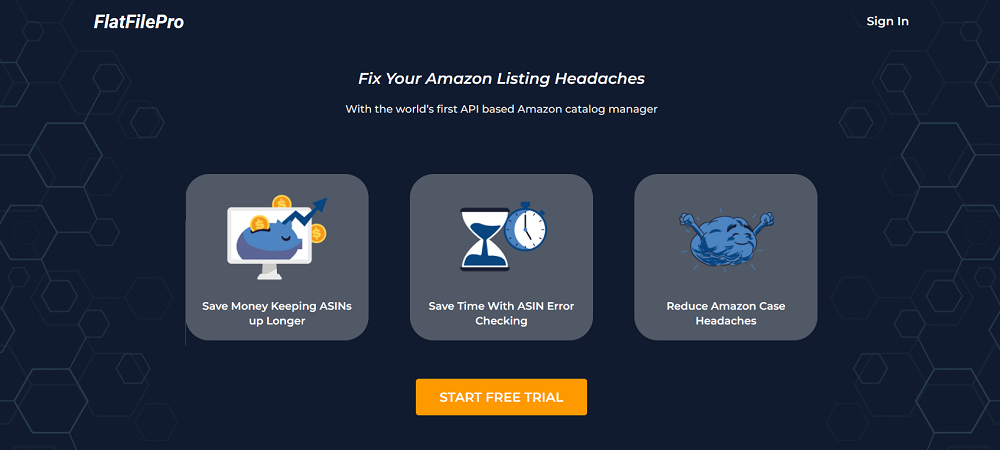
FlatFilePro is our choice for the top PIM for Amazon Merchants because it’s the only Amazon-specific PIM and is world’s first Amazon API based PIM. If you sell on one, or several Amazon marketplaces, you’ll enjoy how easy it is to collect, manage, and update product information.
It creates a backup and saves your Amazon Seller Central product listings, including images and videos. You can bulk edit your Amazon listings, set account permissions, and restore backups from one central PIM.
Flat File Pro is an excellent choice for businesses that want an easy-to-use product information management solution with Amazon Seller Central support.
PIMs for enterprise businesses
Enterprise businesses need specific features from their product information management solutions. The solutions on this list offer advanced product data management features, such as:
- Master product catalogs
- Centralized product data storage
- Automated product updates
- Streamlined product creation processes
- Reporting and analytics tools
Best PIMs for enterprises: Syndigo Content Experience Hub
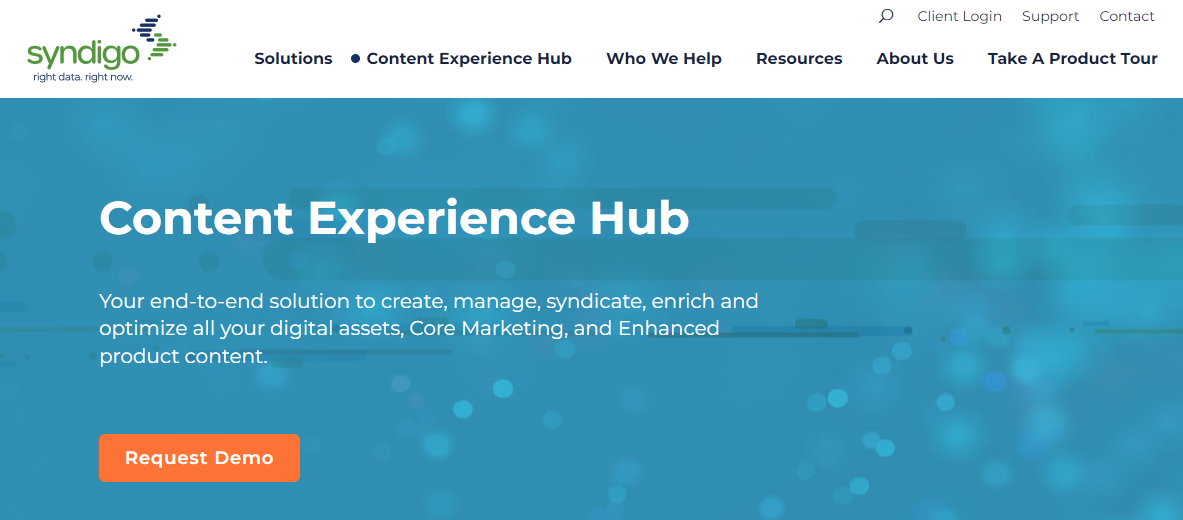
The Syndigo Content Experience Hub is a product information management system Syndigo built for enterprise businesses. It helps retailers, manufacturers, and distributors manage their digital assets and distribute product information.
Syndigo is helpful for those who want to do everything from one central product information management solution. Suppose you prefer to use one system to register product SKUs, share product details with retailers, and publish marketing content. In that case, you’ll enjoy the features and time savings from Syndigo’s Content Experience Hub.
Best PIMs for enterprises: Sales Layer PIM

Another option is to try the Sales Layer PIM. It uses product intelligence to enhance your product data and create a more enriching shopping experience.
Sales Layer is helpful for businesses that want to automate product updates and create product catalogs. It also offers a unique brand loyalty feature to develop reusable marketing and contextual content.
An excellent product content analysis feature also helps boost product visibility on shopping marketplaces and search engines.
Best PIMs for enterprises: Riversand Platform
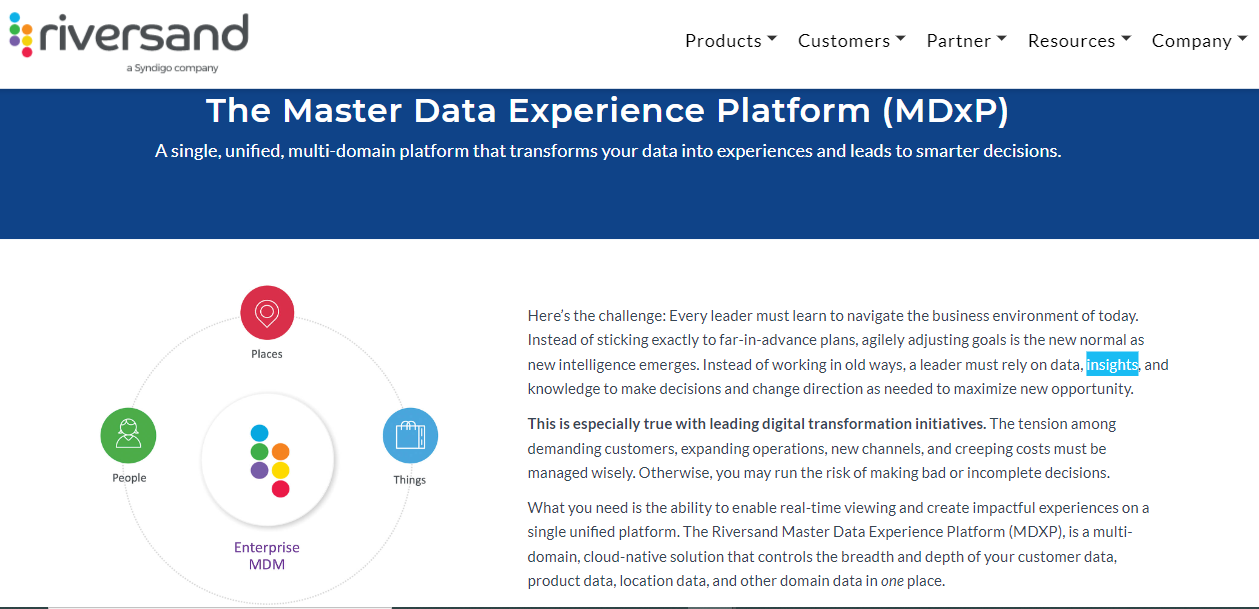
Riversand, another Syndigo company, combines Master Data Management tools with product information management solutions to help build an engaging brand. If you’re developing an eCommerce brand that values personalized and contextual product experiences, then Riversand might be your best option.
Since this is an enterprise option, it’s worth mentioning that Riversand offers a wide range of services in addition to product information management. There’s no limit to the scale or customizability that Riversand provides, but it’s one of the more expensive options on the list.
PIMs for mid-sized businesses
Not every business will need the most potent tools you find in enterprise PIM solutions. These options are a good choice for those looking for more price efficiency for a mid-sized business.
Best PIMs for medium-sized businesses: Akeneo PIM
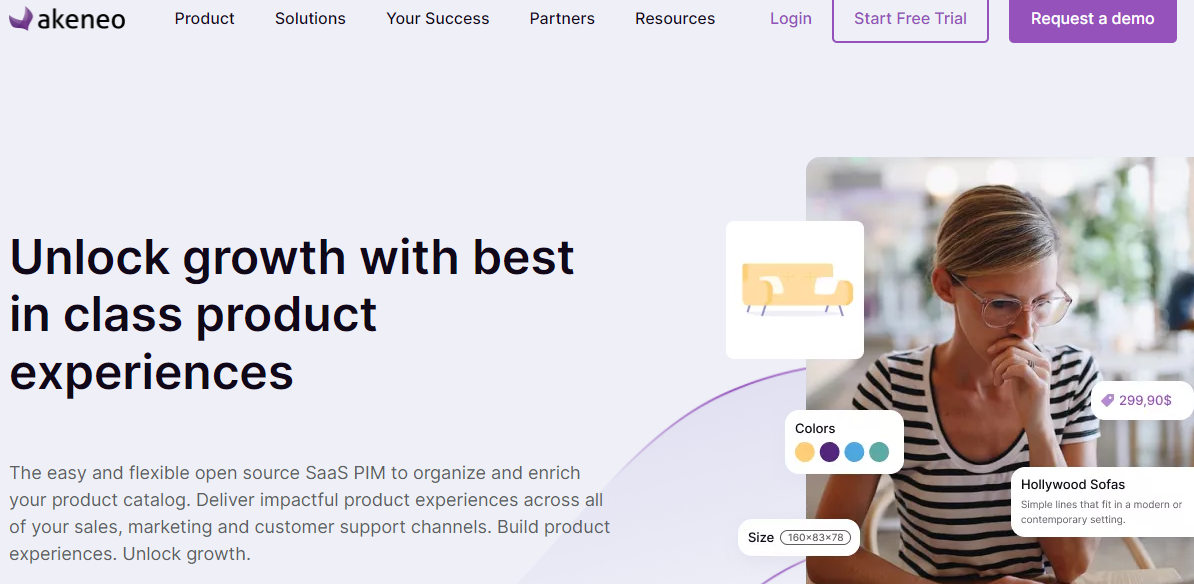
Akeneo PIM is a Software as a Service (SaaS) PIM that helps you build a consistent sales, marketing, and customer support experience. It’s great for growing your online and offline sales channels.
Akeneo is one of the most popular product information management solutions, and it’s perfect for businesses with a complex product catalog. It also integrates well with other software, such as Magento, Shopify, and SAP.
Best PIMs for medium-sized businesses: PIMworks
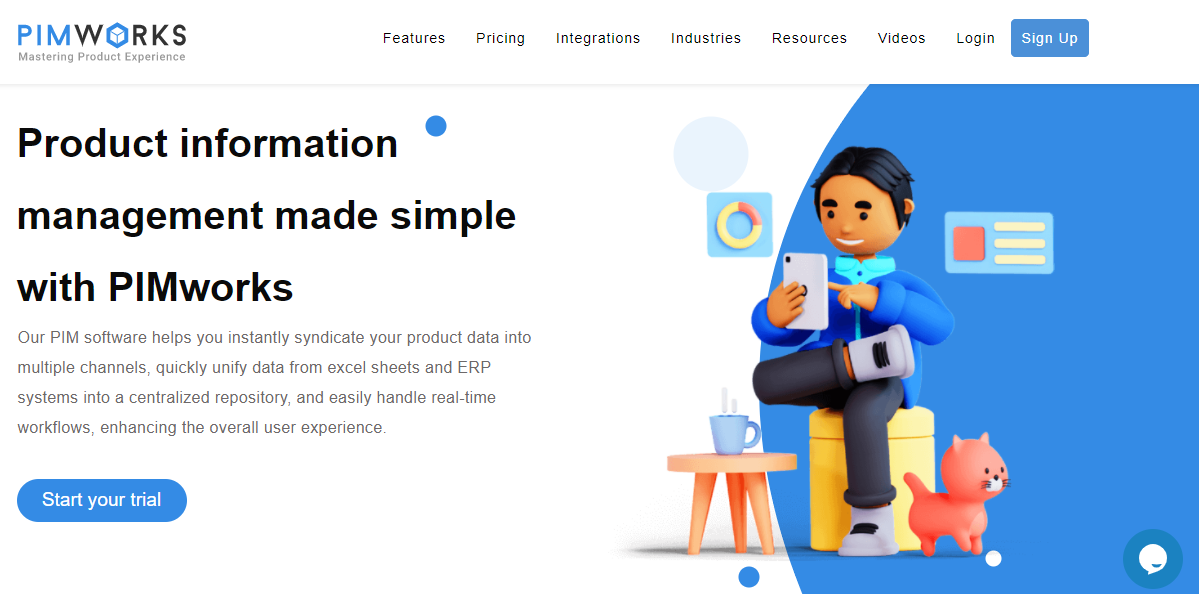
If you’re looking for an affordable product information management solution, then PIMworks is an excellent choice. It’s also one of the most user-friendly options on this list. With PIMworks, you can sync product data onto multiple sales channels.
PIMworks is an on-premises product, so you’ll need to factor that into your decision. However, it does come with a wide range of features, such as product data synchronization, automated product updates, and a product catalog builder.
Best PIMs for medium-sized businesses: Plytix PIM
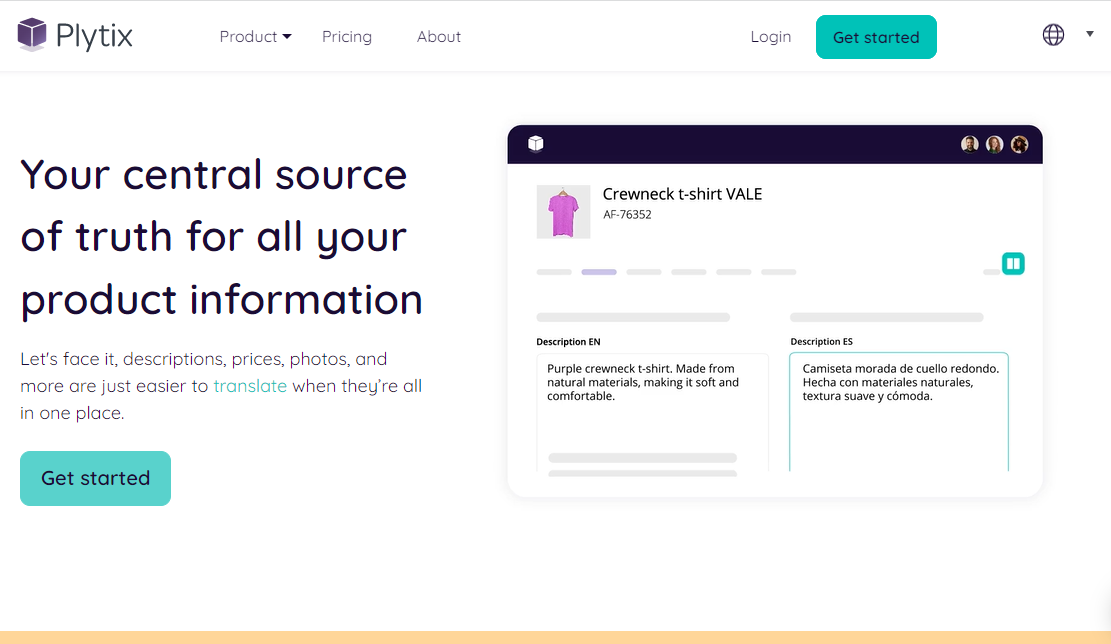
If you’re searching for product information solutions that make team collaboration easy, then Plytix PIM might be a good solution. It’s perfect for product managers, marketing teams, and customer support staff.
Plytix helps you quickly find the product information you need. It also makes it easy to manage product changes and updates.
One of the downsides to Plytix is that it can be expensive, so it’s best suited for businesses that have a lot of product data.
PIMs for small businesses
As a small business, you have different needs from your PIM solution. If you manage a small business, you might want to consider some of these product information management solutions.
Best PIMs for small businesses: Kontainer
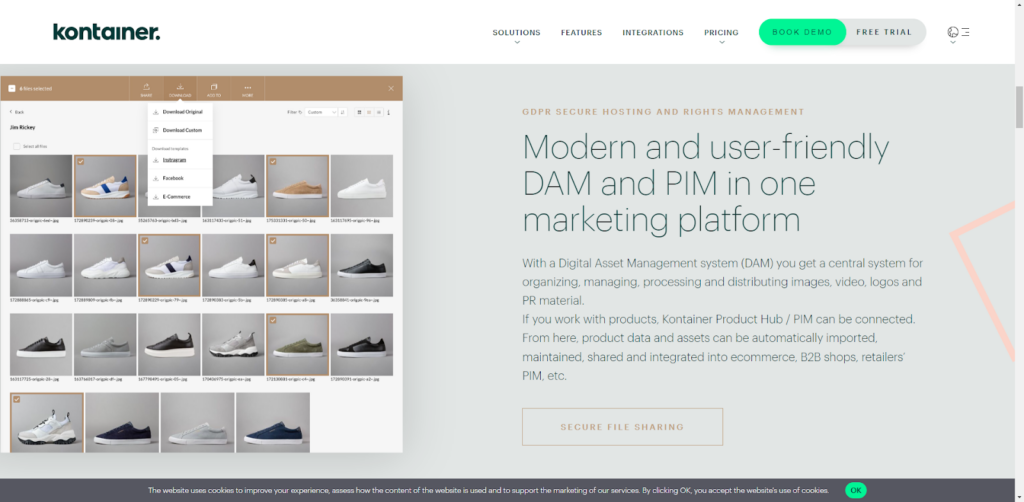
Kontainer has several integrations that simplify importing product information and using it in marketing material. It also has a product catalog builder that makes it easy to manage product data.
Add in the fact that it’s easy to share digital assets with your CMS within your landing pages and emails, and you might have a winner. Plus, anything you share is GDPR secure with Kontainer’s proper management. Thus, it checks all the boxes for a small business product information management solution.
Best PIMs for small businesses: Catsy
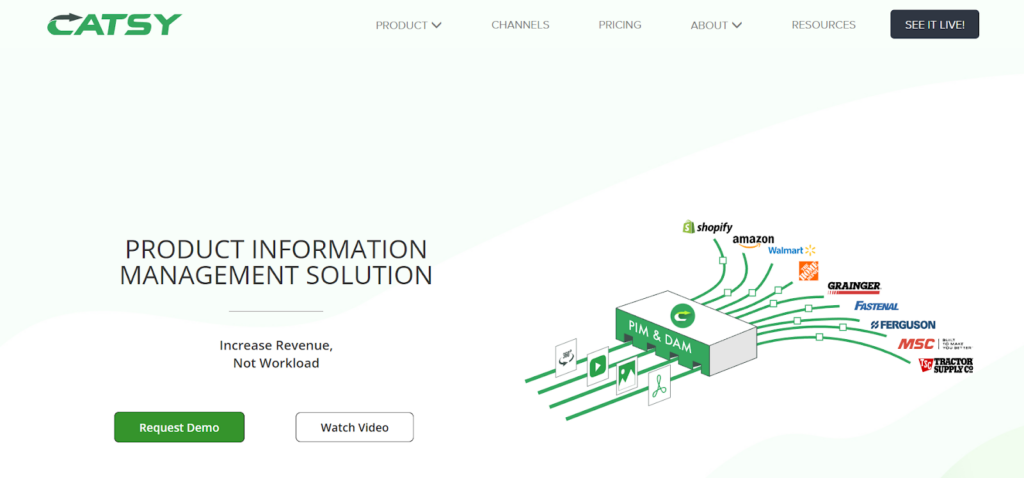
Another product catalog builder, Catsy, is designed to make it simple to keep all your product information in one central location.
Instead of maintaining different folders, spreadsheets, and documents for your eCommerce product, Catsy creates a “single source of truth” ecosystem. That makes it easier to bring products to the market and access updated product information.
Best PIMs for small businesses: Creative Force
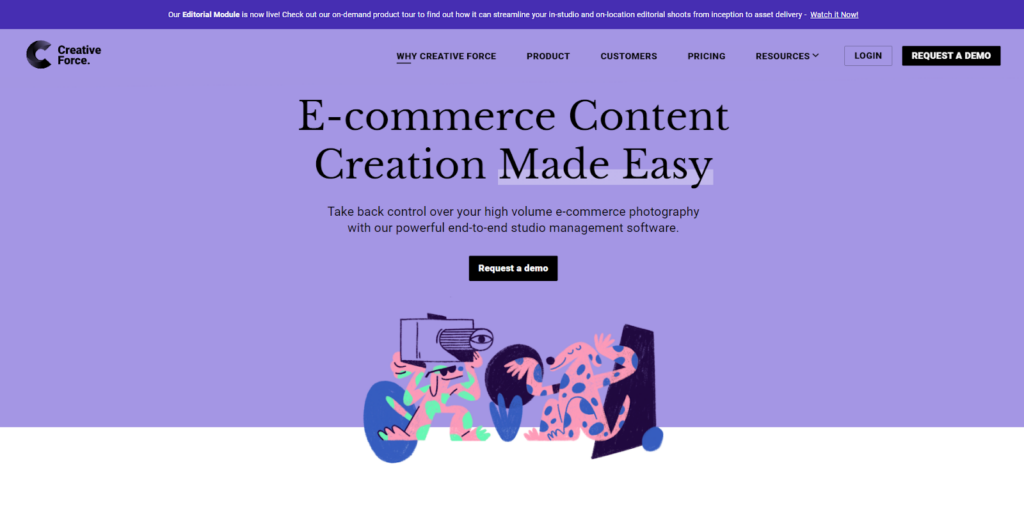
Last on our list of product information management solutions is Creative Force. It’s an excellent solution for small businesses looking to improve their product data accuracy and better understand their customer base.
Creative Force is unique because it offers product visualization tools to help you better understand your product data. It’s also an excellent option for businesses that want to improve their product design process.
In conclusion: Which PIM is right for your ecommerce business?
PIMs are a vital part of any ecommerce business. Whether you’re looking for an enterprise-level solution or one more suited to small businesses, there is a product out there that will fit your needs. Hopefully this quick review of the top 10 of just some of the many PIMs on the market, helps you draw up a short-list to conduct your own in-depth research to find the right one for you.
If you are ready to experience an exceptional PIM for Amazon merchants, you should give FlatFilePro a try. It’s a PIM designed and built specifically for Amazon, that offers an intuitive interface, robust product data capabilities, and seamless integrations. Even better – it’s available to try for free.

